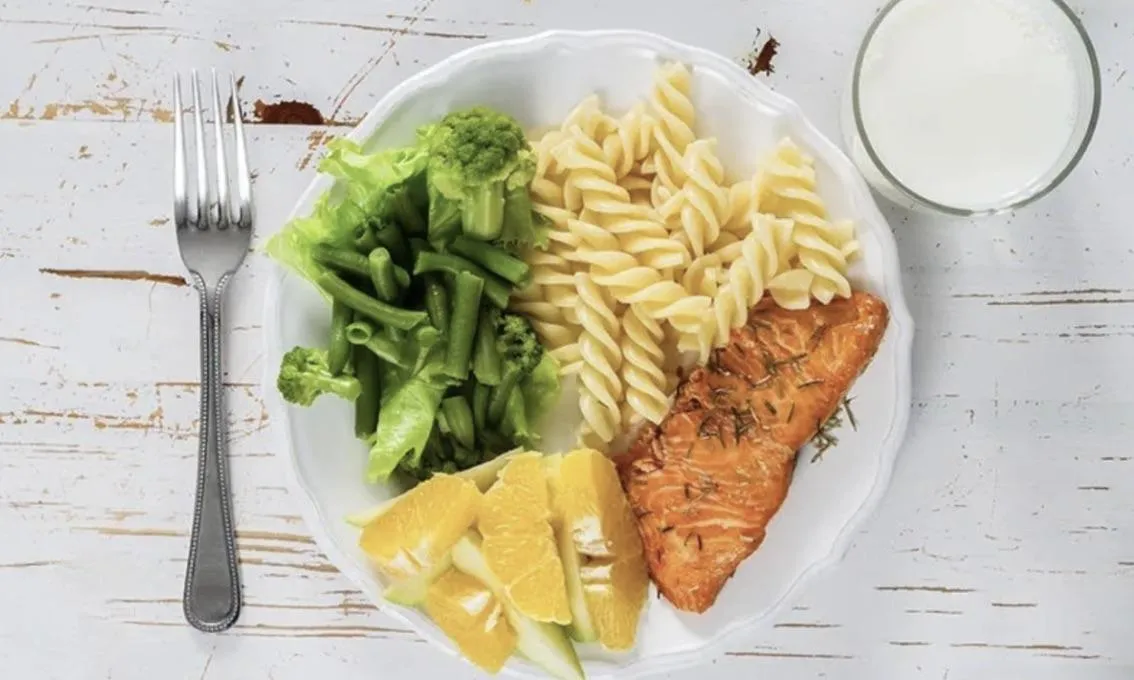
Eat This FIRST To Lose Fat Without Dieting
Trying to lose weight by counting calories? Here's why it's frustrating and ineffective.
👍 To lose weight, your body needs to be in a caloric deficit—burning more energy than you take in through food. The problem is....
Weight management isn’t just calories in, calories out. Your activity level, hormones, and type of food you eat all play a role.
👎 Nutrition labels aren’t as accurate as you think. Food manufacturers are allowed up to 20% error in reporting calorie counts.
👎 Some people absorb more calories from the same food than others. I might absorb 480 calories from a meal while you only absorb 420.
👎 Counting calories is exhausting and unsustainable, often leading to obsessive food thoughts: what you’ve eaten, what you “have left,” and what you regret.
That’s no way to live.
All Calories Aren't Created Equal
1) Fructose vs Glucose These two sugars have the same calorie count but are metabolized differently. Fructose (common in sweetened drinks and snacks) is processed in the liver and can increase hunger and harm metabolic health.
Fruit, on the other hand, contains fiber and water, which slow digestion and keep you fuller.
2) The Thermic Effect of Food
Protein is metabolically demanding—it burns 25–30% of its calories during digestion, compared to just 2–3% for fat. High-protein diets boost metabolism by 80–100 calories per day.
3) A Protein Calorie Isn't The Same As Calories From Carbs Or Fat Protein is the most filling macronutrient by far. Increasing protein to just 30% of daily intake led to participants eat 441 fewer calories a day—without counting, tracking, or forcing it.
The Protein Leverage Hypothesis
Your body is wired to seek out protein. If you don’t get enough, you may keep eating until you do—even if it means overshooting your calorie needs.
When you start meals with 30–40 grams of protein, your body releases satiety hormones like GLP-1—the same one activated by weight-loss medications like Ozempic and Mounjaro.
Food can do that too, just to a lesser degree, but without the side effects.
The 3-Step Meal Strategy to Eat Naturally Less
Take advantage of this natural satiety effect with this food order strategy:
🐟 Protein first – Aim for 30–40 grams per meal (e.g., eggs, chicken, fish, Greek yogurt, protein shakes).
🥗 Vegetables and fiber-rich foods next – These add bulk and fullness without a lot of calories.
🍰 Everything else last – Starches, fats, sauces, desserts.
The most satisfying foods will you fill you up, crowding out the extras.
It Isn’t Just About Weight
High-protein diets help preserve muscle, strength, and bone density.
Focus on "fat loss" not "weight loss."
One of our clients was eating very low-calorie and losing weight--including muscle.
We convinced her to spend the next 90 days focused on protein and to increase her caloric intake so her body could build more muscle.
Voila! 90 days later she'd added muscle and lost fat!
Eating more protein and fiber—and putting them first on your plate—can help you stay satisfied, eat less, and see better results over time.
No guilt. No extremes.
It's a smarter strategy that works with your body, not against it.